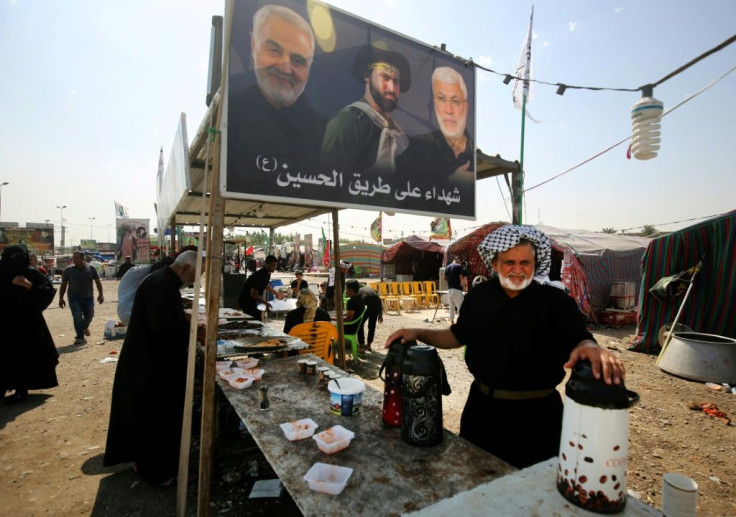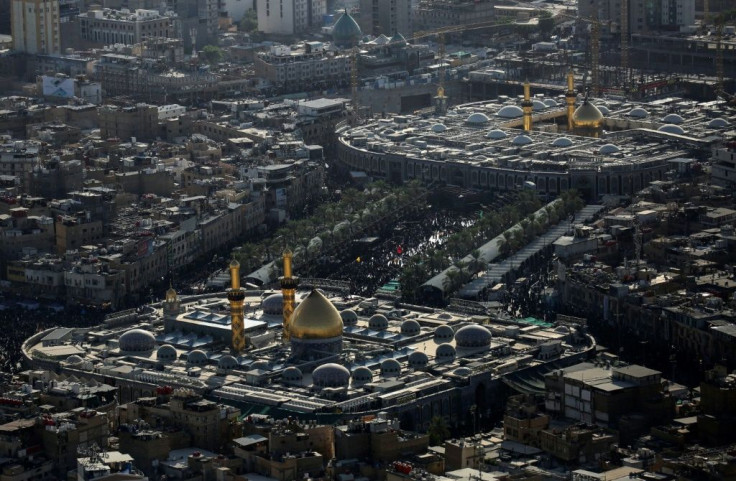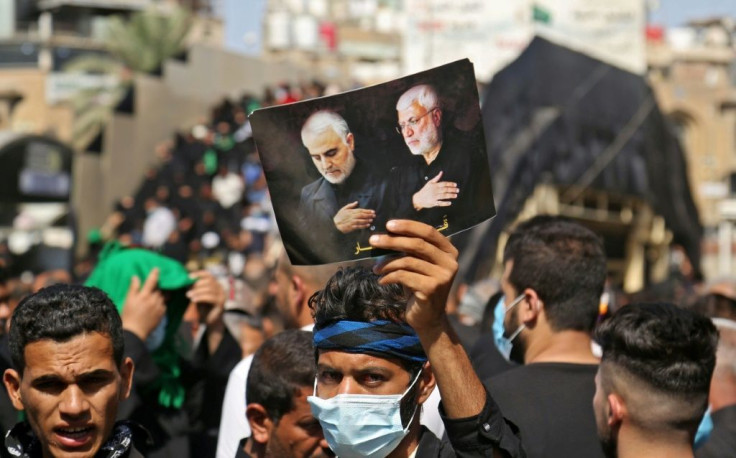Shiite Pilgrims In Iraq Mourn Martyrs Old And New
Millions have massed in Iraq to mourn one of Shiite Islam's most revered spiritual figures but also to honour modern "martyrs" such as an Iranian general killed in a US drone strike.
Huge crowds of pilgrims have walked to the shrine city of Karbala for Arbaeen, one of the world's largest religious gatherings, which concludes Thursday, held in the midst of the coronavirus pandemic.
The festival closes 40 days of mourning for the seventh-century death of Imam Hussein, the grandson of the Prophet Mohammed -- the seminal moment in Islam's Sunni-Shiite split.
This year, huge portraits of slain Iranian general Qasem Soleimani and his Iraqi lieutenant Abu Mahdi al-Muhandis have also loomed above the dense crowds of black-clad and often tearful pilgrims.

Soleimani was a top general in charge of foreign operations for the Revolutionary Guard of Iran, the majority-Shiite regional power with deep influence in neighbouring Iraq.
He and his Iraqi deputy were killed in a US drone strike in Baghdad in January which Washington said was launched in response to attacks in Iraq and the region by Iran and its allies.
"This pilgrimage has a particular spiritual meaning because they (Soleimani and Muhandis) are no longer there," said Hawra al-Mayahi, who was leading a women's procession to the gilded mausoleum of Karbala.
"We have suffered a heavy loss," said Mayahi, only her eyes visible through her long black tunic.
"Nothing has been going right since they have gone."

War-battered Iraq has been caught in the middle of a geopolitical tussle between its allies Iran and the United States, with each vying for influence in the oil-rich country.
After decades of conflict and Islamist insurgency, a wave of major anti-government street protests and the Covid-19 pandemic, the country has increasingly been drawn into the rift.

US Secretary of State Mike Pompeo last month threatened the withdrawal of American troops and diplomats unless Baghdad puts an end to rocket attacks on US interests which Washington blames on pro-Iranian forces.
In another sign of Iraq's complex and deepening political turmoil, a group of anti-government and pro-democracy protesters were barred Wednesday from entering Karbala's majestic shrine to Imam Hussein.
Guards swiftly dispersed the young demonstrators who were shouting anti-Iran slogans and brandishing photos of their own "martyrs" killed in the protests that started a year ago.
The unprecedented street movement called for the ouster of Iraq's entire political elite, whom protesters have accused of corruption, mismanagement and being beholden to Tehran.
Nearly 600 demonstrators were killed amid months of street clashes with security forces, but the popular revolt only truly ended with the arrival of the novel coronavirus, which has claimed some 10,000 Iraqi lives.
This year's Arbaeen was held despite the global public health crisis, with very few pilgrims wearing facemasks in the dense crowds.
International pilgrims were limited to 1,500 per country, far from the four million foreign visitors last year when total attendance was estimated at more than 14 million.
Pilgrims who flocked to Karbala this year -- undaunted by the pandemic or the memory of bloody past attacks on Shiite festivals -- passionately observed the rituals and mourned their fallen "martyrs".
For many in Karbala, Muhandis has gained saintly status for having led Hashed al-Shaabi, an umbrella group of paramilitaries now integrated into the Iraqi security forces.
He is venerated as a military tactician who served under Soleimani in repelling the Sunni extremists of the Islamic State group, who three years ago lost their self-proclaimed "caliphate" across swathes of Iraq and Syria.
"Our martyred chiefs are no longer here, like many fighters," said Shiite cleric Sheikh Majed al-Kaabi, donning a white turban.
"By raising their portraits and shouting their slogans we pay tribute to them."
© Copyright AFP 2024. All rights reserved.





















